Angry Nigerians, yesterday, stormed the South African High Commission in Abuja, threatening to shut down South African companies in Nigeria over xenophobic attacks against foreigners in South Africa, including Nigerians.
According to the Nigerian Consul-General in South Africa, Ambassador Uche Ajulu-Okeke, the loss by Nigerians in the attacks included looted shops, burnt shops, two burnt mechanic shops, 11 burnt cars and two stolen cars among others.
Reacting to the attacks, angry Nigerians protested in Abuja and Benin City even as the Socio-Economic Rights and Accountability Project, SERAP, urged the Federal Government to drag the South African government to the African Commission.
Telecoms giant, MTN, on its part condemned the attacks and charged the South African government to provide strong measures against the spread.
Youths protest at South African High Commission
Nigerian youths under the aegis of Nigerians Demand, took to the streets of Abuja and cordoned the entrance leading to the South African High Commission in Wuse District, protesting the unwarranted attacks and killings of Nigerians.
Apart from the High Commission, the protesters who were accompanied by a team of security personnel also stormed the Ministry of Foreign Affairs and DSTV offices at Maitama, requesting that justice be done to victims of the attacks.
Some of the protesters, who marched in different groups chanted anti-xenophobic songs and displayed placards with different inscriptions that read: “Dear South Africa, we have loved you but you are attacking and killing us why? #Say no to Xenophobia; Stop killings in South Africa, Act now; we are Africans; Foreigners are not responsible for your joblessness, stop the killings; Say no to xenophobia; On February 13, 1976 Nigeria donated $2 million to ANC to assist its liberation movement, #Say No to Xenophobia; Say no to killings of Nigerians in South Africa,” among others.
Bringing the situation under control
Addressing the crowd, co-ordinator of the group, Mr. Deji Adeyanju, expressed disappointment over the attacks and the lackadaisical manner it is being handled by the South African Government and urged the High Commissioner to expedite action in bringing the situation under control.
His words: “We are sad that South Africans, who other Africans stood by during their times of challenge, are showing hate to other African countries. South African government is aiding the killings. We want them to prosecute the traditional ruler who instigated the killings. We are not happy, we want to know steps that are being taken to stop this.
“Never in history have we attacked South African businesses. We don’t see reason to do competition with South Africa. We don’t know where the hate is coming from.
“We have seen shops being looted, we have also discovered that those who are looting the shops have police protection and they are happy that foreigners are leaving South Africa.
“We have spoken with some of our friends and they have told us that they have seen a situation where South Africans are happy and excited that they are leaving. For us, this calls for serious concern because South African corporations and multi-nationals are here, doing their business and thriving very well.
 |
| Xenophobic Attacks:Nigerians protesting against xenophobic attacks in South Africa at the South African High Commission, in Abuja, |
“We see that this is very sad because Nigerians in social media are already urging us to retaliate, but we don’t want this idea because we do not want South Africans to be attacked or killed in Nigeria but we want a situation where the South African government will take action. Let them take a definite action, do sensitization programme for their people. Let them reach out to the traditional rulers in South Africa because this crisis was caused by a traditional ruler.
“We want a situation where the South African government takes adequate action. We are not leaving here until we speak to the High Commissioner. We are here for a very peaceful protest, we will not cause any trouble but we do not want Nigerians to take the laws into their hands. We have asked them not to attack South Africans or their businesses.
“All we want to show is for South Africans to know that Nigerians are very unhappy over what is happening. We also want to use this opportunity to tell the Nigerian government to do more, so that they can be on top of the situation because South Africans have become enemies to African people.”
Youths give SA 24-hour ultimatum
Also addressing the crowd, another leader of the group, Tolu Ebun, said: “Enough is enough. We are giving the South African government 24-hour ultimatum to halt the attacks on foreigners.
“The police in South Africa and the government are not doing enough. We have pictures where the police would stand and look as their people attack foreigners, loot their shops with smiles on their faces; this is sad. Look at Nigerian police protecting the South African High Commission, this is what we should get. This is what South African police should do; not stand by and watch the citizens kill other citizens. This is not good, this is sad, barbaric and we are not part of it.
“We are giving South Africa 24 hours to speak to us. We are angry, South Africans are our friends living in Abuja, living in Lagos and all over Nigeria. There are South African businesses established in Nigeria and we have not brought down any, we have not attacked them in anyway, we stood by them. Why are they attacking us? Is this what Nelson Mandela stood for? Is this what the Madiba died for?”
She further wondered why the High Commissioner should continue to enjoy the protection of Nigeria Police when the reverse is the case in his country.
The group, however, vowed that the protest would be sustained as long as the crisis is not addressed.
84 suspects arrested —SA High Commission
In his response, the Political Secretary and representative of the South African High Commissioner, Sthembiso Shongwe apologised for the xenophobic attacks and appealed to the protesting youths to be calm and assured that his government was working hard to bring the attacks under control.
Shongwe said the South African government had already taken steps to bring the situation under control with over 84 people arrested for various offences.
He further pleaded with Nigerians and promised to work harder to avert future occurrences of the ugly incident.
Youths storm MTN office in Benin City
In Benin City, thousands of youths under the aegis of The Flagship, protested to the Benin City office of MTN, along 3rd East Circular Road, Murtala Muhammed Way, in Benin City, threatening to shut down all firms owned by South Africans.
The placard-carrying protesters urged President Zuma to call the perpetrators to order as Nigerians will destroy any South African business in the country in retaliation for the maiming of foreigners in that country.
The group’s spokesman, Austin Enabulele, described the alleged attacks as inhuman and condemnable, adding that the protest was a warning to the South African government to put a stop to the attacks on Nigerians or risk losing its investments in Nigeria.
He said: “We are all Africans, we wonder why they should attack our fellow Nigerians who are doing their legitimate businesses in South Africa, when we have shown them love to operate in Nigeria.
“We have come here to tell (President Jacob) Zuma to call his people to order because if he fails to call them to order we will do the needful. We are aware of all their businesses in Nigeria; we know of MTN; we know of Shoprite; we know of Multichoice and we know of every other company that belongs to South Africa.
… threaten to shut down Shoprite, Multichoice, MTN
“We will shut down all their services, if they continue the killing of our brothers and sisters. So, we have come here to tell them to put an end to the killing of our brothers and sisters who are doing their legitimate jobs in South Africa.”
Also speaking, Vice President of the group, Gloria Noren, decried what she described as ingratitude of South Africans, whom she said had received financial support from Nigeria during the apartheid era.
She also urged the Federal Government to commence the immediate evacuation of Nigerians from the crisis-ridden country in order to forestall further havoc.
“How can someone come out to say that we are taking their jobs from them? What about the money they are making from us? Nigeria spent over N60 billion fighting apartheid for them. Why should we extend love to them and they give us hatred. It is totally inhuman, distasteful, disgusting.
“We are sending this message to our Nigerian government to go ahead and repatriate all Nigerians in South Africa because we cannot keep losing our brethren.”
SERAP urges FG to drag SA to African Commission
Socio-Economic Rights and Accountability Project Project, SERAP, on its part urged the Federal Government to drag the South African government to African Commission over attacks on Nigerians living in the country.
The group in a statement signed by its executive director, Mr. Tokunbo Mumuni, asked President Goodluck Jonathan to take legal action against the South African government before the African Commission on Human and Peoples’ Rights to seek effective remedies, including adequate compensation for Nigerian victims of xenophobic attacks in South Africa.
Mumuni in his statement said: “Several Nigerians have been attacked and have lost more than 21 million Rand in the on-going xenophobic attacks in South Africa.
“This is unacceptable as it clearly violates the obligations of South Africa under the African Charter on Human and Peoples’ Rights. These serious human rights abuses call for strong and decisive action from our government.”
SERAP argued that South Africa and Nigeria have ratified the African Charter, which made it possible for President Jonathan to support the victims by demanding adequate compensation for the victims.
The group urged the President to immediately instruct the Attorney-General of the Federation (AGF), Mohammed Adoke, to file an inter-state communication before the African Commission on Human and Peoples.
“There is no better time for President Jonathan to do this as the African Commission is meeting this week in Banjul, The Gambia, for its 56th Ordinary Session. Articles 48 and 49 read together with Article 47 provide the legal basis for Nigeria to submit communication against South Africa for violations of the right to life and non-discrimination provisions of the Charter. Countries like Uganda have taken full advantage of this procedure in the past and there is absolutely no reason why Nigeria can’t do the same.
“By taking the proposed legal action against South Africa, the Jonathan government will be giving Nigerians in South Africa the best parting gift ever while also sending a powerful message to the authorities there that Nigeria will no longer accept the inadequate response by South Africa to blatant attacks against our citizens.”
It stated that South African authorities have persistently failed to strongly speak out against xenophobic attacks, and to hold perpetrators accountable, which it said, continued to impact negatively on Nigerian community in South Africa.
It stated: “Such a failure to act also sends a message of impunity to those who commit such crimes. An expectation of impunity can contribute to an escalation of such attacks. And this is exactly why our government must act decisively to stop this trend.
“South African authorities have the primary responsibility to protect individuals, including Nigerians resident in that country, from all types of violence and the duty to implement their international legal obligations to combat xenophobic and other forms of bias-motivated violence.
“The authorities need to be told in clear and unmistaken terms that tolerance and non-discrimination are important elements in the promotion of human rights and democratic values.”
MTN urges SA govt to provide strong measures against spread
Meanwhile, MTN Nigeria, yesterday, charged the South African government to provide strong measures against the spread of the current xenophobic attacks on Nigerians and other nationals in Durban, KwaZulu-Natal province of South Africa.
The company, at a press conference said it was as concerned as other Nigerians over what is happening in South Africa at the moment and condemns the attacks in very strong terms.
Corporate Service Executive of the company, Mr Akinwale Goodluck, however, condemned calls and suggestions on social media for Nigerians to boycott or attack South African businesses in Nigeria, saying that reprisal attacks could not be a better alternative since the South African attacks was not state sponsored, but from a small group of South Africans that are aggrieved about some issues in their country.
Goodluck reminded that MTN Nigeria is a Nigerian company with 99 per cent of work forces made up of Nigerians, though the company has South African roots.
He also hinted that the MTN Group would announce financial assistance for victims of the attacks and displaced foreign nationals, who are now gathered at the Transit Park in South Africa for safety purposes.
He said the assistance would cover temporary accommodation, foods, beddings and blankets, medicals among others.
“There should be no cause for revenge in Nigeria. We are confident that the South African government will deal with the matter, which they have been able to bring under control in the last few days”, he stated.
Goodluck confirmed that there were peace protests to their offices in Abuja and Benin, yesterday, on the issue, which he said they have been able to manage effectively.
He appealed to Nigerians to shun any act of violence, promising that MTN and indeed all South African affiliated businesses in the country are working to ensure that the problem is put under control.
He warned that any violent attack on the telecommunications firm would have spiral effects on other sectors of the economy, which depends on ICT and telecommunications facilities to thrive.
Also, the Chief Executive Officer of South African Tourism, Mr. Thulani Nzima, has condemned the attacks disclosing that about 310 suspects have been arrested. He also said all district disaster management centres have been placed on high-alert while a 24-hour call centre has been established, in addition to shelters which have been set-up to accommodate displaced foreign nationals.
According to Tourism CEO, “It is with embarrassment and shame that I come before the world and especially my fellow Africans to apologise for these senseless attacks. I hold in contempt the loathing and subsequent attacks suffered by our brothers and sisters from the continent. The majority of us South Africans, perceive and carry ourselves as Africans and believe what we have witnessed in some parts of our country goes against the grain of who we are as a people, our constitution, and the principles of Ubuntu that we so dearly adhere to.”
He pointed out that additional law enforcement officers have been mobilised around the country and deployed to the affected areas to enforce the law and prevent further attacks and government is working closely with the UNHCR, UNICEF as well as non-governmental organisations to provide food, psycho-social and other support to those affected.
























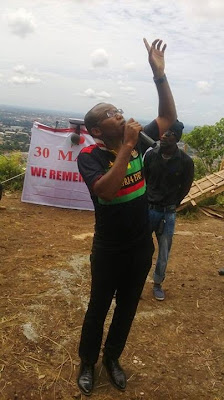











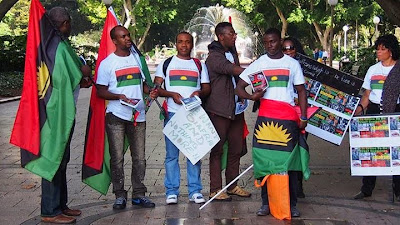












































































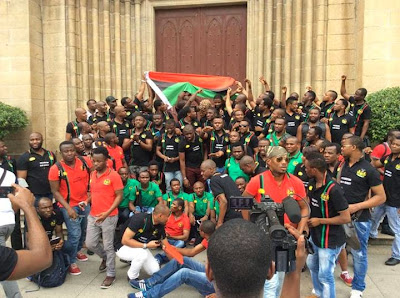









































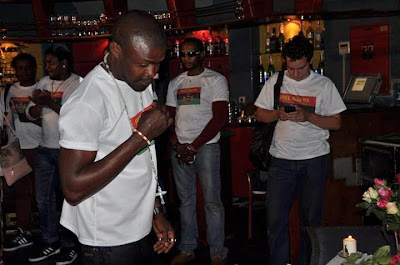































































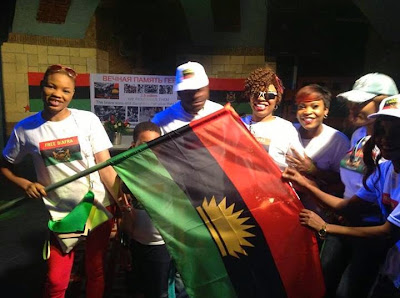





























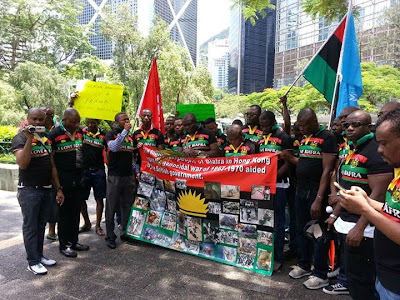



































































































Sosial Buttons
Contact Form